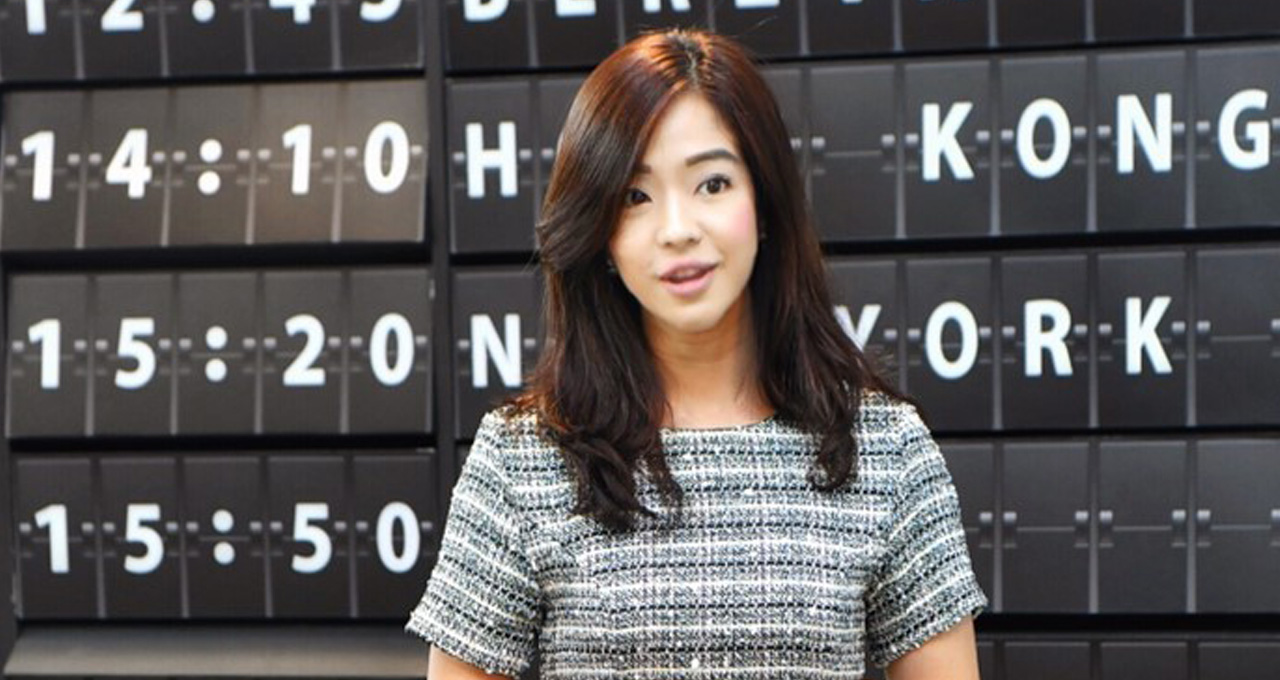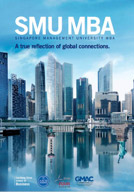
Here’s the hard truth about soft skills: they matter, perhaps much more than business world go-getters might think. Just Google it — or, rather, check out the findings from Google’s Project Oxygen, which was launched in 2008 to address an internal management crisis for the tech juggernaut. After collecting data from performance appraisals and employee surveys, the project’s statisticians came to a conclusion that directly contradicted their initial hypothesis: manager quality does impact team performance. And out of eight characteristics of good managers at Google, seven were soft skills. These included traits such as being a good coach, empowering the team without micromanaging, expressing interest and concern for team members, and being a good communicator.
When Audrey Mah embarked on the MBA programme at SMU in 2018, she had already spent about six years working in marketing and events in various industries. Her real-world experience had helped her realise the importance of soft skills, and the modules Negotiation and Organisational Behaviour consequently became some of her favourite MBA classes.
“I love that with such courses, there isn’t really a cookie-cutter solution. Ultimately, it’s about adapting what we learn to different situations,” she believes. “Soft skills are actually the most important when it comes to real-life scenarios, and they have come in handy in my work life for sure.”
That worklife started in a fairly typical way. Like many youths, Audrey didn’t have a clear idea of the career path she wanted to pursue when she was thinking about what to do for her undergraduate studies. In the end, she made a pragmatic choice, and opted for a degree in economics at the National University of Singapore.
Upon graduation, she worked as a marketing and events executive in varying industries for the next six years. At that point, she remembers: “I felt that my career was getting mundane, and I constantly yearned for new experiences and challenges.” But even though she had worked in different sectors; ranging from lifestyle and entertainment to interior design and construction, Audrey still couldn’t pinpoint exactly how she wanted to develop her career path.
She decided to take a methodical approach, and spent the next few months reading up on various courses and programmes she could enroll in, as a stepping stone to the next phase of her career. “Long story short, I decided that an MBA programme would be best suited for someone like me, who was looking for a change in my career. I would figure out my next steps after that.”
She then had to figure out which MBA programme was the right fit for her needs. “My personal criteria was rather straightforward,” she explains. “Firstly, it had to have a campus in Singapore. Secondly, I wanted a holistic curriculum. I had heard so much about SMU’s amazing culture and curriculum for years, and I thought pursuing an MBA could be an opportunity for me to experience that. And lastly, the fees and course duration are important factors to consider, especially if you’re self-funding your studies. I found that the SMU programme is one of the most practical choices, not only in terms of the fee structure, but also in terms of the short one-year course duration, while providing comprehensive coursework coverage.”
Hence in 2018, she embarked on the SMU MBA programme and found the entire experience – from its academic rigour to the networking opportunities – to be extremely rewarding. “I learned more than I expected — not only evidence-based, academically sound learning, but also real-world practical applications,” says Audrey. “A lot of that came from the course and the faculty, but a large part of that also came from the rest of the class. My classmates were an absolute wealth of knowledge and experience.”
Audrey is now a manager at KPMG Singapore, in a role that focuses on financial services. The soft skills she learned in SMU continue to serve her well. “My role mainly involves strategy and project management, but it isn’t constrained as we sometimes land projects that allow us to pick up different skill sets,” she elaborates. “The soft skills I learned at SMU and the networks I built have benefited me in more ways that I could have imagined.”
For instance, when it comes to interacting with people from different cultures, which happens fairly frequently for her job, “I would not have managed without the experience and knowledge I attained from SMU. I have also found myself looking at challenges and opportunities in a new way and bringing different perspectives to my current role. I won’t be where I am today without SMU”.
Speak to our Admissions Advisors
Singapore Management University
Lee Kong Chian School of Business
Graduate Programmes Office, Level 4
50 Stamford Road, Singapore 178899
Tel: +65 6828 0882
Join us at the upcoming events
Via Gerolamo Cardano, 1, 20124 Milano MI, Italy
1 Raffles Drive, Makati Avenue, 1224, Makati City
Bayerstraße 41, 80335 München, Germany
You may also be interested in
Executive Master of Business Administration (EMBA)
